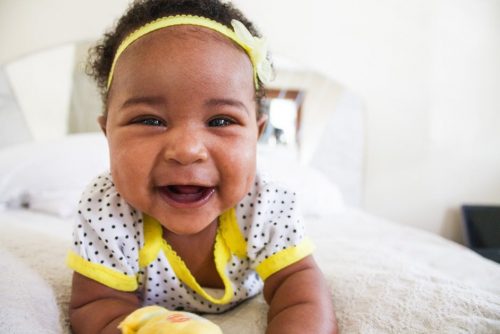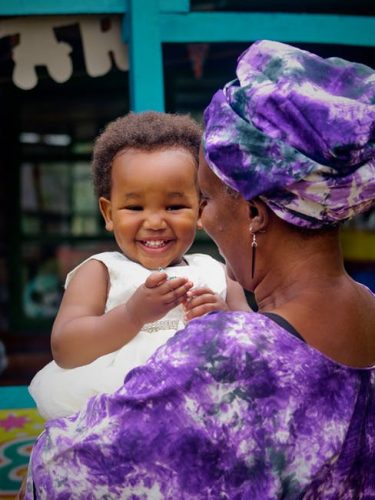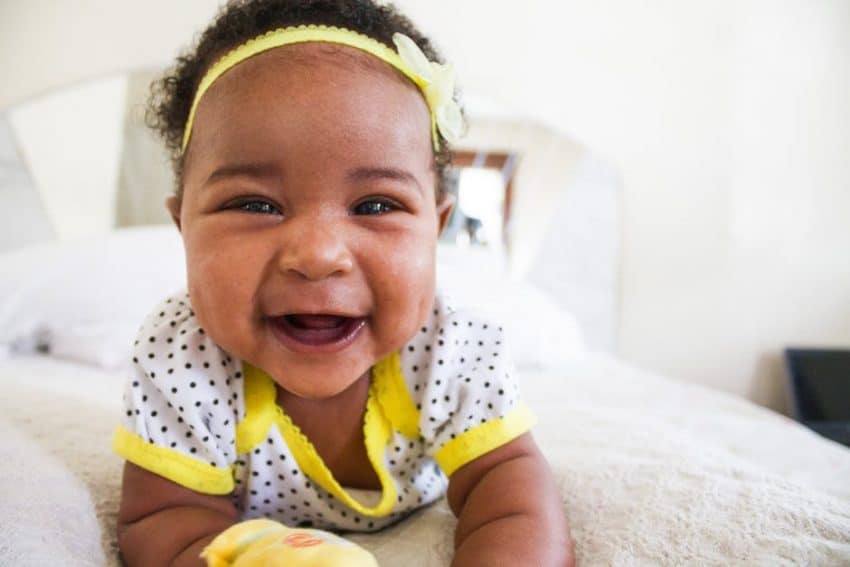Congratulations you are first time parents. As excited as you might be, you might also be worried about doing it right. Perhaps you are concerned that your newborn’s diaper will fall off or wonder if you will be able to burp your baby. Maybe you wonder if you will have enough breastmilk and worried about being able to feed your baby? Becoming a first-time parent can be a bit overwhelming, especially when conflicting advice pours in from all directions.

So! LagosMums has compiled this handy guide of quick tips as a collection from other parents and experts to get you started. This should give you the confidence you need to embrace your new role. But remember to give yourself time to get to know your baby or babies and be flexible!
Be a Good Teacher for Your Baby
Babies learn by exploring the things around them. Show your baby how to look at, listen to, touch or smell something new or different. Hold your baby so she/he can see things. Help her hold objects like her socks or a rattle. As she grows, give her safe objects to feel, shake or put into her mouth.

Your baby will see how you react to things. When you get excited about a toy or object, she’ll get excited too. As she grows, show her how things work; for example, how doors open and close. Talk about what you are doing. For example, “I am putting the food in the pot to cook it.”
A baby doesn’t understand right from wrong. She doesn’t know what things are dangerous for her to do. Watch her to keep her safe. Remove her from situations where she can be hurt or injured.
Talk and sing to your baby
Even before she is able to speak, this helps her develop language skills. Babies learn best when you talk to them. Read to your baby from the earliest months of her life and continue this habit as she grows.
Watch this cute video of a father talking to his baby ????????:
It will be months before your baby says her first word. But babies start learning about language much earlier. As first time parents, you might feel silly or wonder if your baby understands you. But the reality is that even before your baby starts speaking properly, you need to talk to your baby. Even though there might be some differences, in general babies whose parents talk to them talk sooner. They also have larger vocabularies by the time they start school.
Talking to babies gives them language skills that will help them learn more easily when they get to school. Hearing words on the radio or TV is not very helpful to babies learning language. Your baby benefits from having you up close smiling, talking and singing.
Babies Have People Skills too
From the start, your baby is interested in your face. She notices your expressions and tone of voice. She reacts to your emotions. For example, when you say something in a soft and loving way, she will relax and feel more secure.
Scientists have learned that babies show emotions as early as when they are one month old. Something else scientists have learned is that feeling good helps babies learn better. Why? Happy babies are more alert, attentive and responsive. Babies remember things better when they are happy and at ease. The way you hold and talk to your baby can help her feel happy.
Learn to say NO
As first time parents, this is a good time to learn this! The better you get at turning down requests that aren’t in your child’s best interest, the fewer times you’ll need to do so. You can say no once in the supermarket when your child asks to buy a carton of ice cream, or you can say it every night once that carton is sitting in your freezer at home. —David Ludwig, M.D., Ph.D., author of Ending the Food Fight.
Be ready for sick days
Stock up on basic medicines and first aid kit at home. For example, you should have a thermometer at home to take temperature readings. So if you call your doctor with a complaint that your baby feels warm, you will be able to give a reading of your baby’s temperature.
Also have basic medicines at home like baby paracetamol or ibuprofen, these should only be used under the guidance of your doctor. However, there are certain times such as after an immunization shot; where some painkillers can help soothe your baby. Be sure to always ask your doctor before you administer any medicine.
Lastly, trust your instinct! Even if you cannot fully say what is wrong if you feel your baby is unwell call or visit your doctor. As first time parents, you want to have a good paediatrician who will be ready for your questions. He or she should be ready to soothe your concerns. It is advisable to find the closest paediatrician and clinic to your house for any emergencies.
Why is your baby crying?
Crying is the way newborns communicate. Your new baby cries to let you know she needs or wants something. The first thing to try when she cries is to feed her. By noticing when she wants to be fed and when she doesn’t, you will learn which cries mean that she is hungry, uncomfortable or wants attention.
As you and your baby get to know each other, you will sometimes be able to tell the difference between each kind of crying. You can then try to give her what she needs.
Taking care of your baby when she cries will not spoil her. It will help your baby feel loved and secure.
Ways to Soothe Your Baby
Sometimes babies cry even when they have been fed, have clean diapers and are healthy. If your baby is crying because she needs comfort, there are many things you can do. Every baby is different.

Here are things you can try to find out what calms your baby down—
• Rock your baby in your arms or while sitting in a rocking chair.
• Stroke your baby’s head very gently, or lightly pat her back or chest.
• Make soft noises to let your baby know you are there and you care.
• Talk and sing softly to your baby.
• Wrap her up in a baby blanket (but not too tightly).
As first time parents, if your baby keeps crying after you have tried everything, stay calm. Babies know when you are upset. No matter how stressed you are, never shake your baby. Shaking your baby can cause blindness or even brain damage.
Ask a relative or friend to assist you if you need a break! We all know babies can be a handful at times ????
Other Articles you might Enjoy
6 Questions Parents Have About Their New Born Baby


